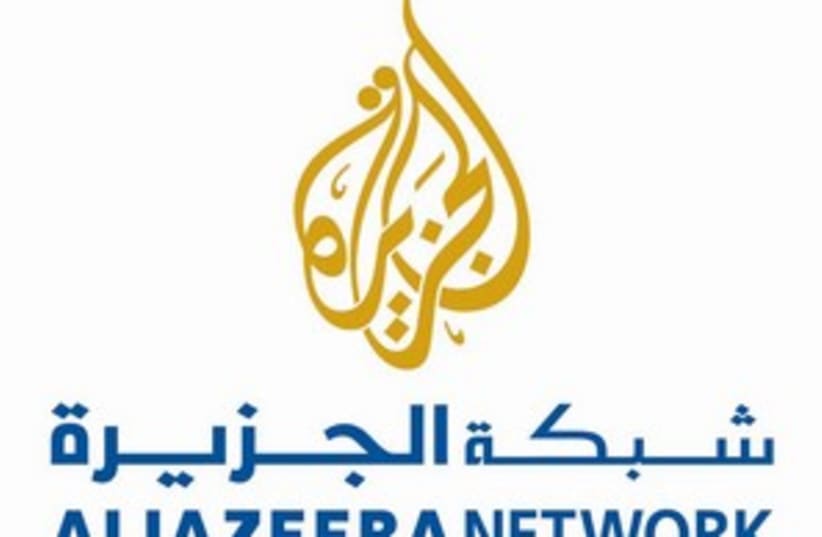Termed “The Palestine Papers” by al-Jazeera – and quickly dubbed “WikiPal” or “Pali-Leaks” by the Israeli press – the documents include memos, e-mails, maps, minutes from private meetings, accounts of highlevel exchanges, strategy papers and power point presentations dated between 1999 and 2010.
Al Jezeera has drawn particular attention to “the historic offer made by the Palestinian Authority in 2008 to concede nearly all of East Jerusalem for which Israel would have given nothing in return…” According to al-Jazeera’s website,”Taken in total, The Palestine Papers instigate a broader conversation on such issues as whether a two-state endgame is achievable and desirable and whether international and US led processes to reach that goal have only deepened Israeli occupation.”
Within Israel, responses to the leaks have been predictable. Rightwing, hard-line Foreign Minister Avigdor Lieberman told the press that even the most left-wing government of Olmert and Livni could not reach a permanent peace agreement with the Palestinians, thus reinforcing his contention that, at best, only an interim agreement is possible. Left-wing critics of Israeli policies, on the other hand, contend that Israel could never be satisfied, since the Palestinian’s maximum will always be less than Israel’s minimum.
And in what appears to be an attempt to ward off criticism of the Palestinian Authority, Robert H. Serry, UN Special Coordinator for the Middle East Peace Process, issued a statement in which he wrote, “…Some of the commentary I have seen conveys an inaccurate impression.
I can personally attest to the commitment of the Palestinian leadership to secure the legitimate rights and interests of the Palestinian people, based on international law and UN resolutions.”
In contrast to the extensive media hype given the leaks, prominent commentator Yossi Alpher tells The Jerusalem Report that there is “nothing new in these documents – nothing astounding, nothing that wasn’t already known.” Alpher, editor of the bitterlemons Israeli- Palestinian website, and former director of the Jaffee Center for Strategic Studies at Tel Aviv University, cautions readers, “Take this in proportion. It’s likely to all blow over.”The Jerusalem Report: What is the significance of the documents that have been leaked?Yossi Alpher: In truth, I learned nothing from these documents. Substantively, they don’t tell us anything new. All of the information that has been leaked so far was already known. Even those which have been reported as the more explosive revelations – such as the offers regarding the Jewish quarter and the Temple Mount – are really not news at all. And the complaints that the Palestinians have against [Prime Minister Benjamin] Netanyahu and his team, and negotiating teams before them – regarding their attitudes towards the Palestinians – are not news, either.So why is there so much hype about these documents? First of all, because these days, leaking official documents seems to be the latest fashion. It’s sensationalistic and it certainly has a titillating value. And even though the documents merely prove what is already known, it is important to note that these are official documents that cannot be denied. Until now, at least on the Palestinian side, most of the information was based on rumors or leaks by individuals who participated in these meetings. And, finally, the hype may come from the fact that the documents are embarrassing to Palestinian Authority President Mahmoud Abbas because they prove that he was willing to make greater concessions than the Palestinian street is willing to make.Who has an interest in embarrassing Abbas? That is the only interesting part of the leak. The leak almost certainly comes from the Fatah inner circle, so it points to internal Palestinian politics. One of the names that comes up is [former head of security in Gaza] Mahmoud Dahlan, who was deposed from power by Abbas. But we don’t really know, and I don’t believe that any Israeli observer really has a very good fix on exactly what the domestic Palestinian political situation is at any given moment.What effect will these leaks have on Abbas and the Palestinian Authority? There has been a lot of conjecture that these leaks will weaken Abbas and strengthen Hamas. I doubt it. They will be embarrassing, yes. And Hamas will try very hard to show that Abbas was disloyal to his people, was willing to make too many concessions, and so forth. But Abbas has so much counter-ammunition. He will be able to show that he has held his ground, that he didn’t give in on the settlements, that he has not agreed to negotiate with Netanyahu unless Netanyahu makes some concessions. So he will have plenty of counter-arguments. At least at this point, no one is demonstrating on the streets of Ramallah.
Yet the Palestinians are aggressively claiming that the documents are fabricated.Yes, it is pretty nonsensical and ludicrous, since the facts are already known. Abbas and [chief Palestinian negotiator at the 2008 talks] Ahmed Qurei have launched this silly counter-offensive simply because they are embarrassed.Will these leaks have any effect on the peace process? Perhaps if there were a peace process, they would. Perhaps if the leaks had come out as the negotiators were burning the midnight oil to reach a breakthrough agreement, the leaks might have been damaging. But they cannot affect the non-peace process, the process that simply doesn’t exist. Unless something completely different and astounding is released soon, I predict that this whole issue will be forgotten soon.
